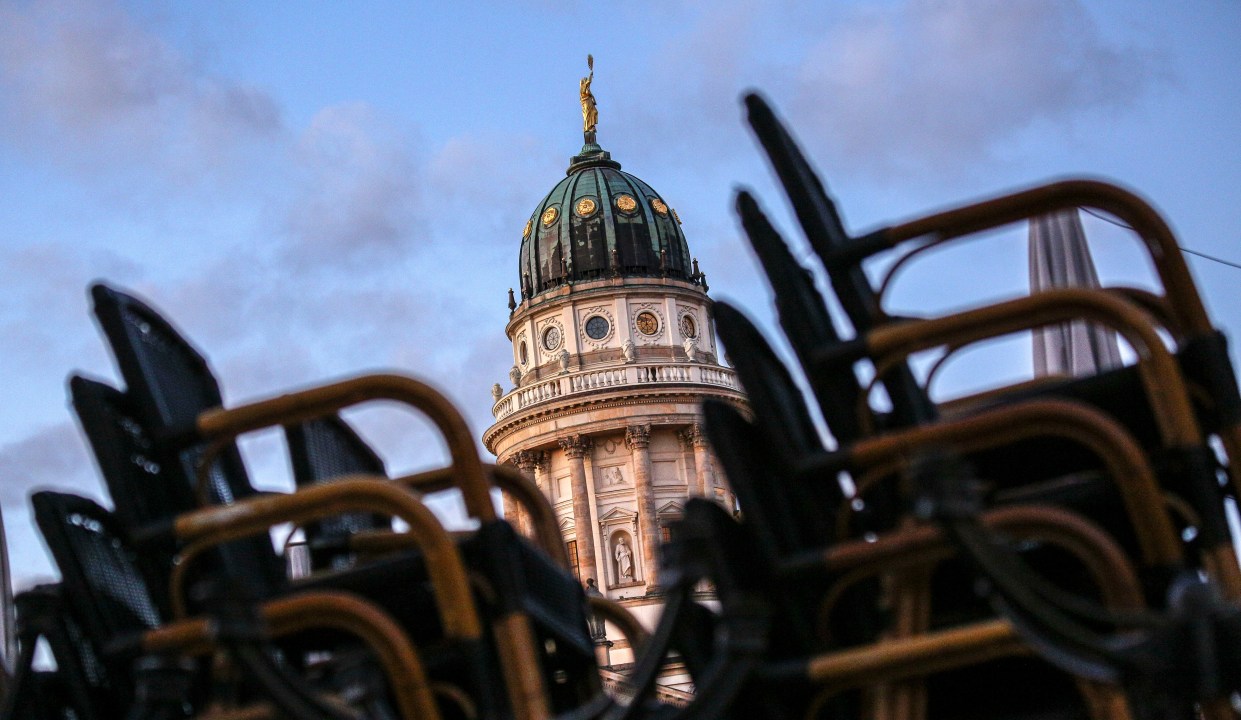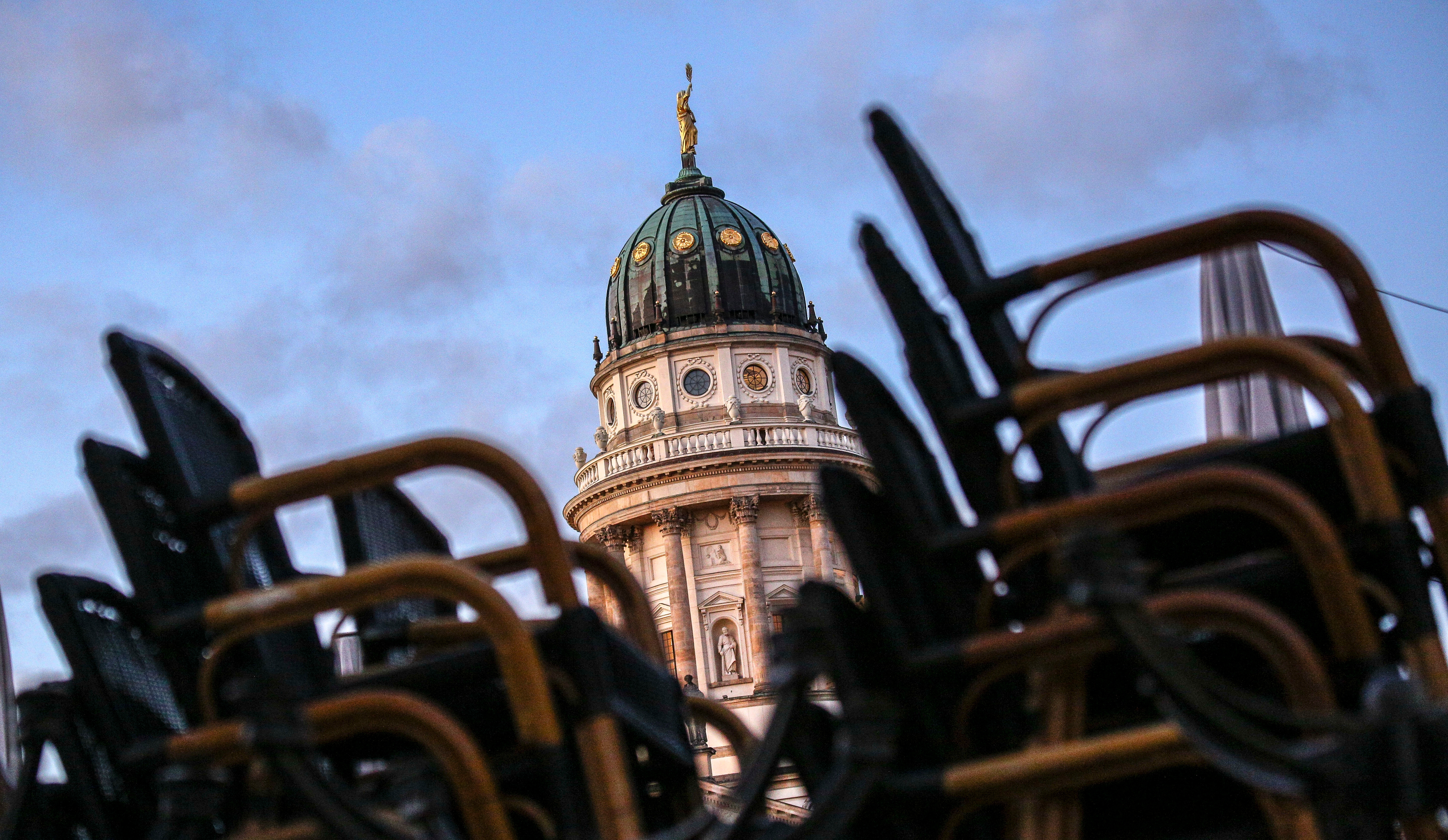Germans, just like Britons, will have to cope with restrictions during this year’s Christmas holidays. Yesterday, Angela Merkel and the heads of Germany’s federal states agreed on an updated catalogue of regulations that will allow ten adults to meet for a Christmas party. After three weeks of what is widely called a ‘lockdown light’, the infection rates in German cities and regions continue to remain above the threshold that has been set by medical experts. The vast majority of Landkreise (regional districts) have recorded an incidence proportion of higher than 50 cases per 1,000 inhabitants within the last week.
Chancellor Merkel said yesterday that the ‘lockdown light’ has prevented the health care system from collapsing, as one-fifth of intensive care beds remain available across the country. But in the same breath, she pleaded with her people, saying: ‘We need another strong effort’. Government officials in Berlin and the regions fear that the Christmas holidays could lead to a rise in infections that would then also affect the schools once kids return in early January.
One criticism of Germany’s approach is that citizens have been buried under a pile of rules and recommendations
That said, officials are keen to avoid too much discontent, which is why they have made only minor adjustments. Until 20 December, only five people from two different households can meet privately. The number will then increase to ten during the Christmas break. Protective masks are now mandatory in any rooms that are publicly used, although most institutions already enforced such a rule voluntarily. All pupils from seventh grade upwards have to wear masks in class. Churches are asked to find alternatives to lengthy worship services on Christmas Eve, while cities are asked to ban fireworks on New Year’s Eve.
One criticism of Germany’s approach is that citizens have been buried under a pile of rules and recommendations. The weekly newspaper Zeit rightfully asked its readers in an online editorial: ‘Do you understand it?’ Only a few will carefully read the 15 page paper the governments agreed upon yesterday. Most will apply common sense and try to avoid unnecessary risks.
The decision by Merkel and the heads of the federal states coincided with reports that showed a stronger-than-expected economic rebound in Germany, as the country’s gross domestic product grew by a record 8.5 per cent in the third quarter. However, the continuation of the ‘lockdown light’ means the outlook is clouded. Restaurants, bars, hotels and entertainment venues have been closed since 2 November and will remain closed until at least 20 December. A contraction in the service sector is expected to weigh heavily on GDP in the fourth quarter, while lockdown measures in other countries are likely to hit Germany’s export-oriented manufacturers as well. Economists predict a GDP drop of around 1 per cent in the final quarter.
Another economic plunge could put more pressure on Merkel to ease restrictions.







Comments